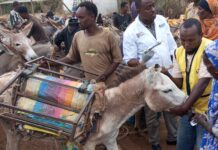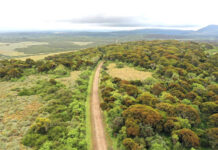By Sharon Kiburi
Turkana County, Kenya: Residents of Turkana county are at risk of being exposed to hazardous environmental factors due to oil and gas exploration activities.
Reports indicate that environmental safety is being disregarded at the Turkana mining WellPads fields. The WellPads have poor security, no/inadequate fencing, and poor waste management systems that expose residents to hazardous environmental effects.
The Ministry of Petroleum and mining, which conducts its duties on behalf of the people of Kenya, appears to be asleep on their accountability job. The people of Turkana are likely to experience loss of pasture land, contamination of underground water, land and air pollution.
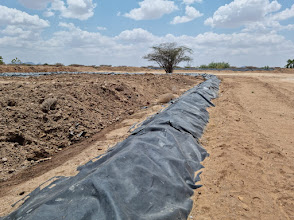
“In my recent visit to the Turkana mining exploration sites, I discovered that nine mining well Pads have no fences, no security, and the dumping site for waste was poorly managed. The waste is consolidated in one land field and has not been tested for hazardous chemicals, while some attendings lacked proper protective gear. ”Said Muturi Kamau, Director of Kenya Oil and Gas Working Group (KOGWG). Adding the petroleum act mandates the companies to take care of the mining areas to cause minimal harm, a duty that seems to be simply neglected.
In contrast, Jacob Asembo County, director of environmental affairs with the National Environmental Management Authority (NEMA) in Turkana County, says, “Tullow and joint ventures had drilled about 40 successful wells Pads the Well Pads are securely fenced and manned, although we have few cases of vandalism.”
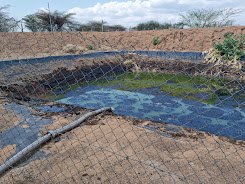
Context of the law provisions
Continuing, Muturi says the 2019 frontline engineering design, updated filed a development plan, and the Environmental impact assessment (EIAs) as obligations that need to be met for development to take place. To enable the transition from exploration to extraction development.
At the same time, the development stage involves setting up a structure to aid with the oil or gas extraction, for instance, a central processing station. The wellheads should be well fenced and security provided to avoid accidents to the communities living near the Well pads.
Muturi further explains that while Kenya is making strides in ensuring proper governance mechanisms in terms of policy, legislative, regulatory, and institutional frameworks, more still needs to be done to ensure the implementation. For instance, the Ministry of Petroleum and Mining is formulating and updating the Kenya Petroleum Policy 2018 to provide a policy framework for the sector.
The regulations act background
On 12th March 2019, President Uhuru Kenyatta accented to the Petroleum (exploration, development, and production) Act, 2019, which was aimed at addressing several areas that were missing in the repealed Petroleum (exploration and development) Act, Cap 386 of 1984, including ratifying field development plans and field development plans by parliament.
Moreover, sharing of revenues accrued from the sale of oil and gas between national government, county governments, and communities, economic value added to Kenyans through Local Content, transparency and accountability for petroleum agreements, annual accounts, and revenues, including fees, taxes, royalties and other charges, the establishment of regulatory bodies including Upstream Petroleum Advisory Committee (UPAC) and the Energy and Petroleum Regulatory Authority (EPRA). Said Kamau.
The waste management procedure
Further, Asembo says all highly hazardous waste ere transported and incinerated at NEMA licensed sites in Athi River. The remaining waste that is mud cuttings, silicate, and oil-based cuttings are currently held in Twiga one (waste transfer station).
The waste is yet to be treated and disposed of. The company responsible for waste management and disposal Tai Enterprises Limited transports the wasted in ways that are not away. It is not well covered; hence, it spills on the roads and the environs in Turkana during transportation, posing a danger to the environment of the people of Turkana.
When we contacted the named Tai Enterprises Limited to explain their waste management processes, they declined to respond on the grounds that it is confidential information for their client African Oil.
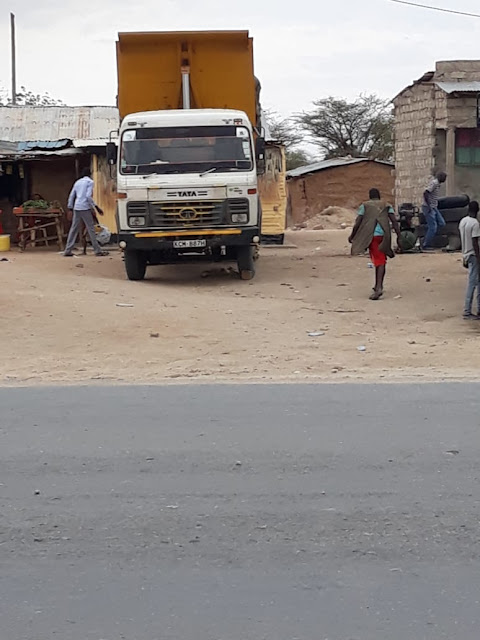
This consolidation of waste from the forty-well Pads before testing can cause harm if hazardous chemicals are hipped in one giant pile. There is a proposed integrated waste treatment facility to be developed at Ngamia during the complete development stage. “There is a possibility of underground water contamination and also soil contamination in case the waste is not handled more safely,” said Asembo.
Adding Asembo said, to protect the environment in Turkana, there is a need to develop a waste treatment facility in South Lokichar, Routine monitoring of stored waste, good integrity of liners, and environmental monitoring.
The community in Turkana had raised the alarm in September 2021 on waste management problems and licensing lapsing. Environmental pollution affects communities, emissions from exploration fuel climate change, and drilling disrupts wildlife habitats.
The assessment of the air and soil pollution in Turkana I get done to show how the WellPads and poor waste management process affected the area and community.

